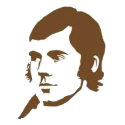
|
|
Perth Burns Club |
|
| | home | about | committee | presidents | constitution | syllabus | membership | | |
| | annual dinners | st andrew's days | schools festivals | summer outings | | |
| | immortal memories | book library | video gallery | burns in perth | links | contact | |
St Andrew's Day
A day of Scottish life and culture
| 2024 | 2023 | 2022 | 2021 | 2019 | 2018 | 2017 | 2016 | 2015 | 2014 | 2013 | 2012 | 2011 | 2010 | 2009 | 2008 |

Presenters and officials gather beforehand. Left to right: Dr Fiona Watson, PBC President Alan Telfer, Malcolm Robinson, Dr Darroch Bratt, and PKC Provost Xander McDade. Piper Martin Bristow played in the sizeable audience.
Perth's main celebration of St Andrew's Day, the twentieth Perth Burns Club's annual Day of Scottish Life and Culture, was held in the Soutar Theatre at the A. K. Bell Library, York Place, Perth, fittingly on Saturday, November 30th, 2024.
As ever, the event maintained its reputation for high quality, and the audience was treated to a thoroughly entertaining and diverse programme.
President Alan Telfer welcomed PBC members, visitors and speakers, and looked forward to maintaining the high quality of entertainment provided by the event over many years.

President Alan Telfer

Piper Martin Bristow

Provost Xander McDade
Alan called upon PKC Provost Xander McDade to open the proceedings.
Xander recalled that Ukraine, Georgia and Russia also had St Andrew as a patron saint, but that people preferred politicians to keep things simple and peaceful in their everyday lives. Enjoying the afternoon's proceedings would be in line with that.
Principal Speakers

Dr Darroch Bratt
Darroch worked in the whisky industry at Drumnadrochit for 10+ years after graduating from Aberdeen University. His PhD thesis is entitled 'Whisky and the Highlands - a Spiritual Survey', and includes elements of archaeology and culture.
The earliest record of organised whisky production is John Cor in 1494, and Inverness grew to be the main producer in the 1560s. Production spread widely thereafter, including Iona in 1609 where an export trade with Ireland began in 1615 - an incentive for many to emulate in an impoverished economy.
Acts of Parliament followed in the 1600s, variously driven by tax raising, economic growth and Protestantism. The first legal distillery was established by the Forbes family on the Black Isle at Ferintosh. In Edinburgh, the Porteous Riots were linked to the Wash Act.
Bothies and illicit stills became rife, spreading via drove roads, while some legal stills were bought from previously illicit ones (e.g. Perthshire). Morality and crime became intermixed - landlords and tenants had conflicting needs to uphold the law while running local economies.
Darroch showed several slides of his various stravaigs through the Highlands, pinpointing elementary still operation amongst the landscape.
A fine opening presentation, with a wealth of research and engagingly presented by Darroch.

Dr Fiona Watson
Dr Fiona Watson then presented "Robert the Bruce - what kind of man was he?". Fiona spoke without notes and gave an in-depth account of the times of Bruce, laced with great insight and humour.
Bruce was one of a number of Norman nobles who were given lands in Scotland and England after the Norman invasion of Britain. Bruce was given land in North England, and also, via the Earls of Carrick, operated in Ireland and Scotland. A branch of the Bruce family lived in Essex. Their allegiance was primarily to the English king, but Bruce had to be careful of shifting power bases, e.g. John Baliol being given the kingship in the north.
A further aggravation was John Comyn who Edward hoped would effectively rule Scotland following the abdication of Baliol.
Bruce dealt with the Comyn threat by stabbing him in Greyfriars Church in Dumfries (1306) - just before Edward died - seizing the moment with great pragmatism.
The intrigues surrounding the Scottish throne continued via Wallace, Lamberton, Bruce, Baliol, et al, with support from the Highland clans, until the big moment in 1314. A fascinating and thoroughly enjoyable talk by Fiona!

Malcolm Robinson
Our final speaker was Malcolm Robinson, who was the first Scot to lecture on UFOs in the US (at the 18th International UFO Conference in Laughlin, Nevada during 2009). Malcolm covered 'Paranormal Scotland and the Sauchie Poltergeist'.
Malcolm told the story of Virginia Campbell who moved from Ireland to the Hillfoots area of Scotland in 1960, settling first in Sauchie during 1960. In bed, she heard footsteps above, felt the bed vibrate and watched the sideboard move. She looked for help from the Reverend Lund (Hillfoots Parish) and the local GP, Dr Logan, but neither could shed light. She moved locally to Dollar, but continued to have disturbed nights there.
Re-investigations took place in 1984, 1987, 1994 and 2020, some involving the local press, but no-one could establish any hard evidence. There were no reports of abnormalities prior to the building of Park Crescent on farmland in Sauchie, but intermittent occurences later.
Virginia moved to Bedford, where apparently she experienced further similar disturbances, but sadly wouldn't be drawn into interviews or re-enactments - something of a shame since the older woman may have developed a different perspective.
No neat conclusions then: hoaxes? psychokinesis? hallucinations? souls after death? You choose...
Vice president Joe Giacopazzi brought an excellent afternoon's entertaiment to a close with a big vote of thanks for the organisers, the speakers, and the appreciative and participative audience.
All photographs courtesy of
Elliott Boyle, Perth Burns Club.
Email Elliott if you'd like a copy of a photograph.